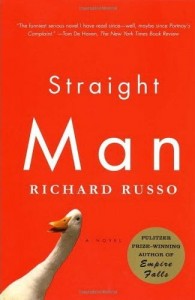 Title: Gulliver's Travels (Goodreads)
Title: Gulliver's Travels (Goodreads)
Author: Jonathan Swift
Published: Oxford World's Classics, 1726
Pages: 362
Genres: Classic
My Copy: Paperback
Buy: Amazon, Book Depository, Kindle (or visit your local Indie bookstore)
Jonathan Swift’s classic satire novel Travels into Several Remote Nations of the World. In Four Parts. By Lemuel Gulliver, First a Surgeon, and then a Captain of Several Ships was released in 1726 but in 1735 the title was amended simply to Gulliver’s Travels. The novel was popular not only because it was a parody on the popular “travellers’ tales” genre but as a satire on human nature. It later gained increase popularity in its abridged form as a classic in children’s literature.
It seems a little odd to me that many people have experienced Gulliver’s Travels as a children’s book. Comparing what I know from the abridged children’s book to the version I just read, it feels like a completely different book. The abridged version I believe only focuses on books 1 and 2 and all satire, allegory or symbolism has been stripped from it, which means the bulk of makes Jonathan Swift a great writer has been completely removed and only the fantastical elements remain. Other classics received a similar treatment to turn into a kids book including, Robinson Crusoe, The Thousand and One Nights (known as The Arabian Nights) and to a less extent Alice’s Adventures in Wonderland and Peter Pan.
When reading a book like Gulliver’s Travels it is important to remember that Jonathan Swift deals heavily in irony. Take for example his essay ‘A Modest Proposal’ in which he suggests a solution to the population issue in Ireland. He suggested that we need to “regard people as commodities” and went on to say that “A young healthy child well nursed, is, at a year old, a most delicious nourishing and wholesome food, whether stewed, roasted, baked, or boiled; and I make no doubt that it will equally serve in a fricassee, or a ragout.” This straight-faced proposal is a form of Juvenalian satire where Swift mocks the heartless attitudes the government has towards the poor, as well as Irish policy in general.
Gulliver’s Travels’ satirical themes are very subtle but are typically directed towards moral, political, social and religious ideals. The main satirical themes I found within the novel focused on war, corruption in the laws and politics and the ignorance or arrogance of doctors. There is a lot of irony within the book, for example the term medical malpractice refers to ordinary medical practices and horrific carnage is meant to be extremely fun.
This is a book that comes with more layers than an onion; we could look at the travel novel as a genre, colonialism, and even the changes in Gulliver’s opinions and language over the course of the book. You could even read this as a rebuttal to Defoe’s optimistic account of human capability in Robinson Crusoe which was published seven years earlier. On the surface, you can look at Gulliver’s Travels as four different short stories but if you decide to explore it deeper you are heading down a rabbit hole you may never escape.
I have to admit I didn’t spend as much time as I should have and explored some of the ideas within this classic a little deeper. I was very aware that if I dug deeper I would be stuck reading this book for the rest of the year, maybe the next. I am fascinated by this book, I would love to dig deeper in the future but with the aid of a study guide or something similar. I will be reading this book again and I would like to encourage others to pick it up if they haven’t done it in the past. Swift really has a decent grasp on satire; so much so that we have the term Swiftian to refer to his satirical tone and pessimistic outlook in literature.

 Title: The Flamethrowers (
Title: The Flamethrowers ( Title: The Circle (
Title: The Circle ( Title: Straight Man (
Title: Straight Man ( Title: The Monk (
Title: The Monk ( Title: The Sex Lives of Siamese Twins (
Title: The Sex Lives of Siamese Twins ( Title: Summer House with Swimming Pool (
Title: Summer House with Swimming Pool ( I listen to a lot of
I listen to a lot of  Title: Cat's Cradle (
Title: Cat's Cradle (